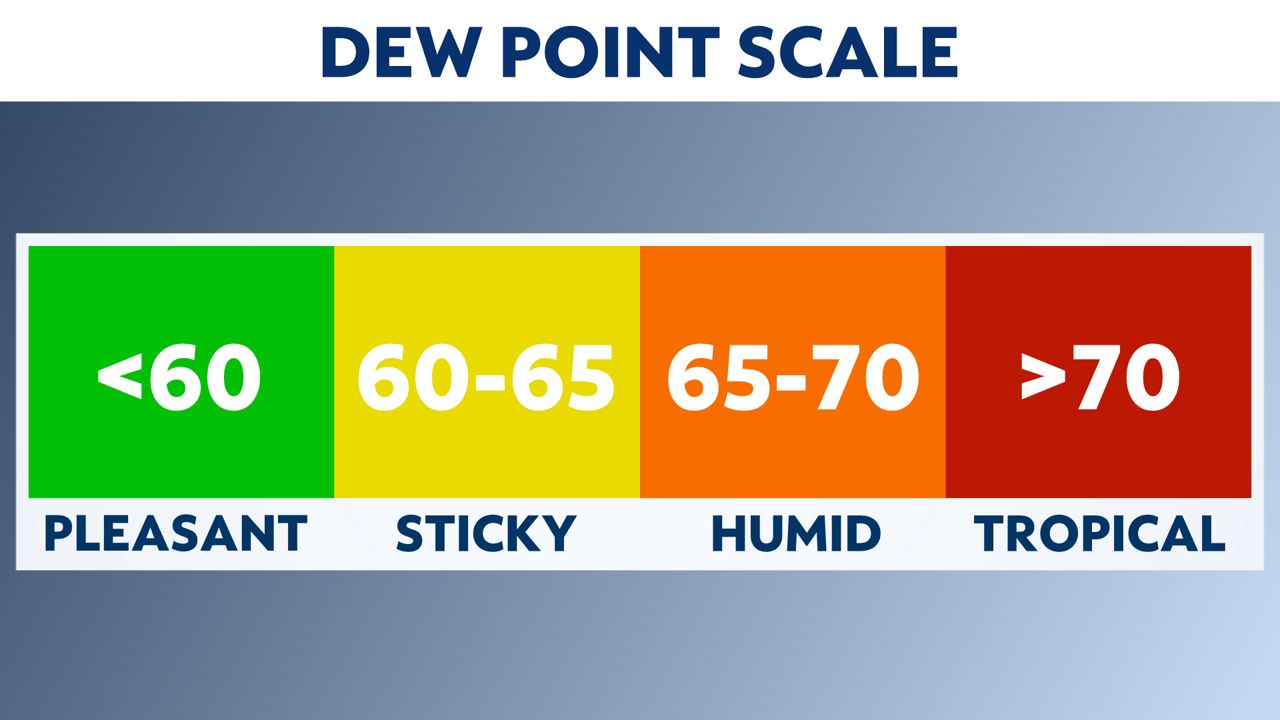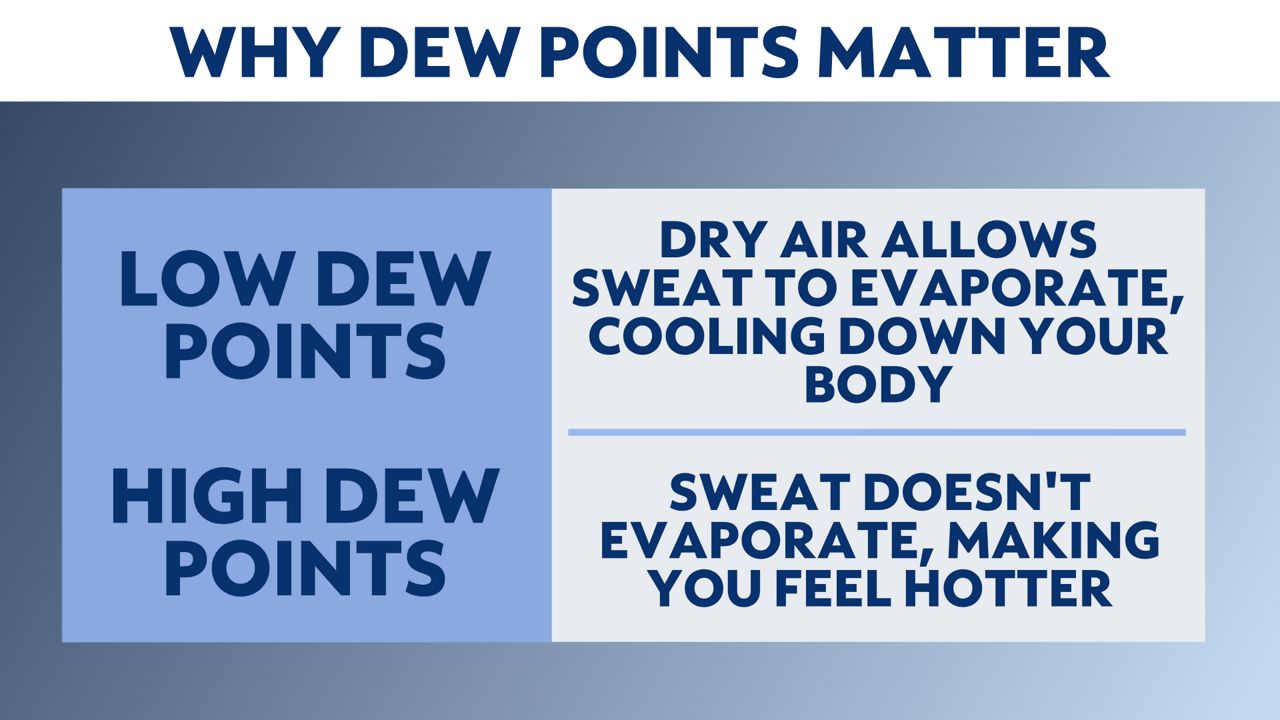Why do meteorologists like to use dew points so much instead of relative humidity? It's because it measures the true moisture content in the atmosphere.
Do you ever wonder why meteorologists always talk about dew points instead of the relative humidity? The answer is simple. The dew point temperature expresses the true amount of moisture in the air, which correlates to how sticky or humid it feels outside.

The relative humidity is the ratio of the amount of moisture actually in the air to the maximum about that can be present at that temperature. However, the dew point is the temperature at which the air will have a relative humidity of 100%. Sounds complicated, I know, but stay with me.
Let’s say the dew point is 71 and the air temperature is 71. That would make the relative humidity 100%, because both temperatures are the same. In addition, the higher the dew point, the more humid it will feel outside.
Dew points can make it well into the 70s in the summer. In the winter, dew points can drop into the single digits when the air is very dry.
On a cold day, it doesn't really feel humid, even when both the dew point temperature and the actual air temperature are the same (and the relative humidity is 100%). This is because cold air cannot hold as much moisture as warm air.
Let's do a calculation as an example. If the air temperature is 90 degrees and the dew point is 70, the relative humidity is 52%. That doesn’t sound humid, does it? In actuality, that combination would feel very humid to you, thanks to the high dew point.

As a general rule of thumb, any time the dew point exceeds 60 degrees, it starts to feel sticky outside. When you hit the 70s, it truly feels more tropical.
When you combine the heat and the humidity, you get the heat index. The higher the actual temperature and dew point temperature are, the higher the heat index will be. This could make for a dangerous combination, which could lead to heat stroke and heat exhaustion.
Our team of meteorologists dives deep into the science of weather and breaks down timely weather data and information. To view more weather and climate stories, check out our weather blogs section.



